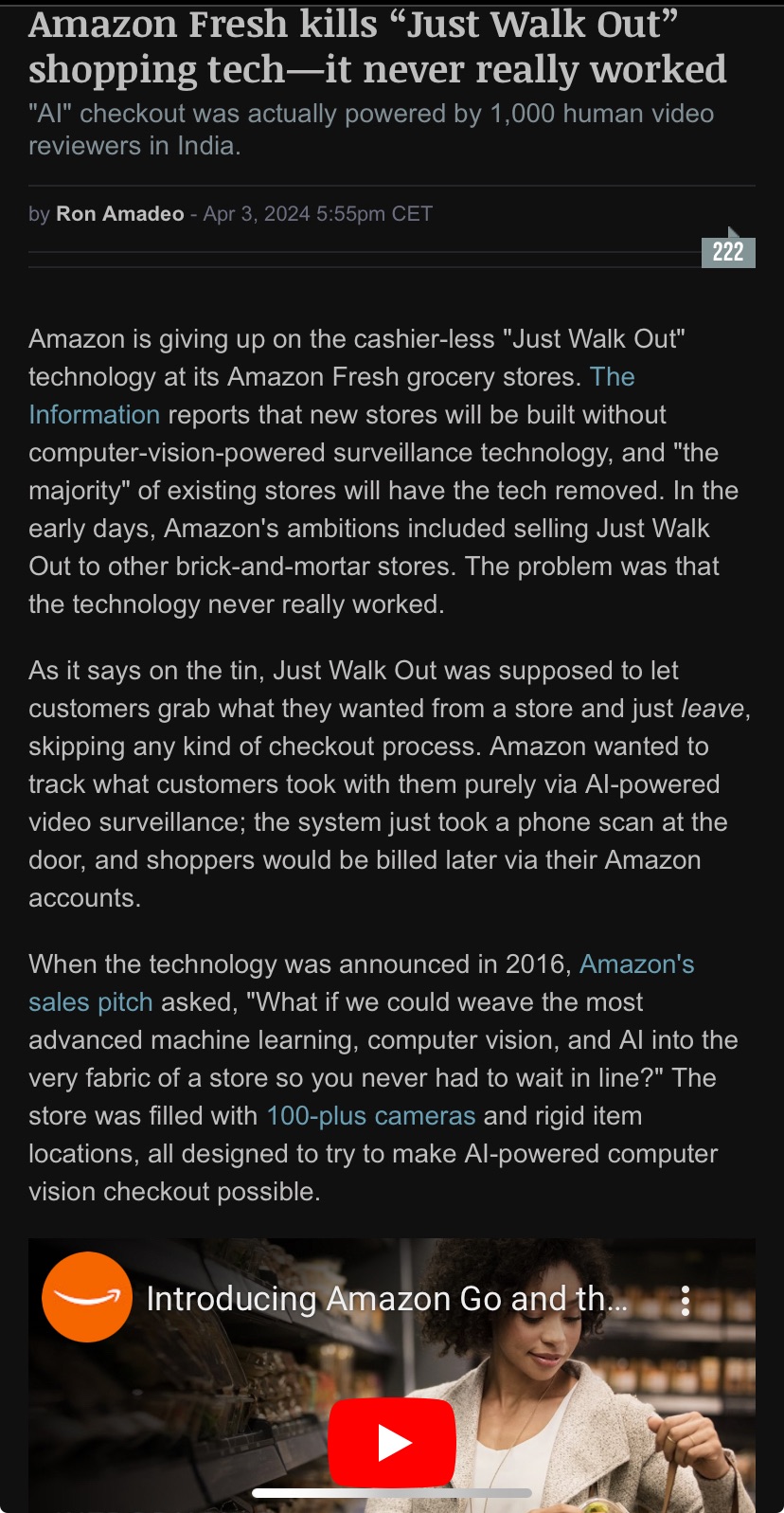Ars Technica writes about Amazon pulling the plug on its Fresh grocery shopping concept, because it just didn’t work:
Just Walk Out was supposed to let customers grab what they wanted from a store and just leave, skipping any kind of checkout process. Amazon wanted to track what customers took with them purely via AI-powered video surveillance; the system just took a phone scan at the door, and shoppers would be billed later via their Amazon accounts.

Ars refers to reporting by The Information (paywall) that suggest Amazom was not able to properly train the machine vision AI they should detect what items people are grabbing from the shelves. The report said that “Amazon had more than 1,000 people in India working on Just Walk Out as of mid-2022 whose jobs included manually reviewing transactions and labeling images from videos to train Just Walk Out’s machine learning model.” And: “As of mid-2022, Just Walk Out required about 700 human reviews per 1,000 sales”, which never made it a viable technology.
These kinds of new shopping experiences are also emerging het in the Netherlands, for instance in Utrecht where Aldi has a similar ‘Shop & Go’ concept store. It fits really well with the ‘friction free’ discourse of Smart Tech. Thanks to technology, at no point does the individual need to feel limited or hampered in their sense of freedom by mundane things like waiting in a queue, having to speak to someone, or be interrupted by drawing their wallet. Even taking a product from the top shelves and handing it to somebody else means that you will be billed. So much for everyday sociability and solidarity…
Yet as so many have already noted, friction is what life in the city is about: dealing with other people and events beyond your control. It’s of course deeply ironic that one of the biggest and richest tech companies seems to not be in control of this latest friction-free technology. Yay for bumping into each other!
==UPDATE
James Bridle in The Guardian makes the valid point about the real price that is being paid by the underpaid workers in far-away countries, and the neo-colonialist violence being done to its core values:
When this work is outsourced via video cameras, it is passed to data labellers. Amazon’s remote data labellers might be paid one or two pounds an hour, if they are lucky. If you can replace half a dozen UK staff with half a dozen data labellers in India, Kenya or the Philippines, then the difference in the annual staff bill alone could be almost £100,000 a year. […] The size of Bezos’s rocket is very precisely determined by the difference in costs between paying a worker in Britain and a worker in India – including all the historically determined racist and colonialist inequality that calculation involves.